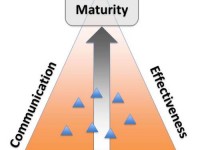Over the last few months I regularly stumbled over clients struggling with the same question: ‘how can we create groups that can learn from mistakes faster, more efficiently, and more consistently than competitors do?’. The background of this question is the simple observation that a lot of groups systematically underperform. They do not make good decisions and they do not solve complex problems in a collaborative way.
As the saying goes, two heads are better than two. If so, then three heads should be better than two, and four better still. The belief is that different people take note of different ‘parts’, and if those parts are properly aggregated, they will lead the group to know more (and better) than any individual. Reality, however, teaches us that this rarely happens. Groups often fail to live up to their potential as decision making bodies. Instead of aggregating the knowledge and wisdom of their members, they end up making bigger errors than individuals would.
The scientific community identified two main reasons why group errors occur. The first is that group members often receive incorrect signals from other members. The second involves reputational pressures, which lead people to silence themselves or change their views in order to avoid some penalty – often, merely the disapproval of others. In order to avoid these two pitfalls the scientific community advises to invest in critical thinking in order to invite people to disclose what they know and to overcome the reputational pressures by assigning roles, appointing devil’s advocates, and ‘silencing’ the leader.
Constructive developmental psychology teaches us that these approaches might have some effect, but will not lead to the development of substantial collaborative intelligence. In order to create breakthroughs in the quality of team decision making, insight in the relationship between the nature of the team purpose, on one hand, and the fluidity of thinking and the social-emotional maturity of the team members, on the other, is crucial. The good news is that the ‘Rewriting Team Dynamics’ Workshop by IDM not only provides you with the insight into the dynamics of creating collaborative intelligence, it also introduces five tools to bring collaborative intelligence into reality.
